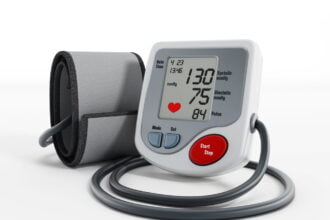Traumatic Brain Injury (TBI) is a serious health condition that can result from various incidents such as falls, accidents, sports injuries, or assaults. It occurs when an external force causes damage to the brain, leading to cognitive, physical, and emotional impairments.
Traumatic brain injuries are probably far more common than you think. The CDC reports that around 2.5 million people suffer from them every year. It is important to get a quick diagnosis and prompt treatment.
TBI testing plays a crucial role in identifying and assessing the extent of brain injury, allowing for timely intervention and appropriate treatment. In this blog, we’ll explore what TBI testing in Dallas entails, its importance, and the methods used for assessment.
What is TBI Testing?
TBI testing refers to the process of evaluating individuals suspected of having suffered a traumatic brain injury. It involves a combination of clinical assessments, imaging studies, and cognitive evaluations to diagnose and assess the severity of the injury. TBI testing aims to identify any structural or functional abnormalities in the brain caused by trauma and to guide treatment and rehabilitation efforts.
Importance of TBI Testing:
The importance of TBI testing cannot be overstated, as it serves several critical purposes:
Early Detection: TBI testing allows for the early detection of brain injury, even in cases where symptoms may not be immediately apparent. Early diagnosis enables healthcare providers to initiate prompt intervention and prevent further damage to the brain.
Treatment Planning: TBI testing provides essential information for treatment planning, helping healthcare professionals develop personalized treatment plans tailored to the individual’s specific needs and symptoms. Treatment may include medications, rehabilitation therapies, and psychological interventions.
Prognostic Assessment: TBI testing helps assess the severity of the injury and provides prognostic information about the individual’s expected outcome and recovery trajectory. This information guides expectations for rehabilitation and helps individuals and families plan for the future.
Methods of TBI Testing:
TBI testing encompasses a variety of methods and techniques to evaluate brain function and assess the extent of injury. Some common methods include:
Neurological Examination: A thorough neurological examination is often the first step in TBI testing, involving assessments of cognitive function, motor skills, reflexes, and sensory perception. The examination helps identify any neurological deficits or abnormalities that may indicate brain injury.
Imaging Studies: Imaging studies such as CT scans and MRI scans provide detailed images of the brain, allowing healthcare providers to visualize any structural abnormalities, hemorrhages, or lesions resulting from TBI. Imaging studies are essential for confirming the diagnosis of TBI and assessing its severity.
Cognitive Testing: Cognitive testing evaluates various aspects of cognitive function, including memory, attention, language, and executive function. These tests help assess the impact of TBI on cognitive abilities and guide treatment planning and rehabilitation efforts.
Neuropsychological Assessment: Neuropsychological assessment involves comprehensive testing of cognitive, emotional, and behavioral function, providing detailed information about the specific areas of impairment and guiding rehabilitation efforts. Neuropsychological assessment is particularly useful for identifying subtle cognitive deficits that may not be apparent on standard cognitive tests.
Final Words
TBI testing is a critical component of the diagnostic and treatment process for traumatic brain injury. By identifying and assessing the extent of brain injury, TBI testing allows for timely intervention, appropriate treatment planning, and prognostic assessment. Healthcare providers, individuals, and families should be aware of the importance of TBI testing and the various methods available for assessment. By working together, they can ensure that individuals affected by TBI receive the care and support they need to achieve the best possible outcomes.










